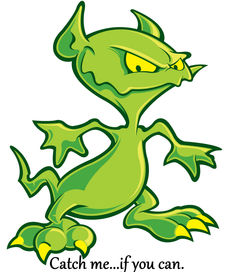
by Ally Shields
I've just completed several rounds of edits, copyedits and galleys. If I've learned nothing else, I'm convinced manuscript gremlins, those pesky little errors, creep in and breed when you're not looking. Seriously. There's no other explanation for finding them time...after time...after time.
Or is there?
Could it be that revision/corrections can create their own errors? Heaven forbid.
And yet, think about it. What happens every time you change a word and move text? Did you get rid of all the old text? Is the new punctuation correct? Is the new text consistent with what comes before and after?
In order to minimize introducing new errors in the editing/revision phases, here are eleven things to watch for when deleting, changing, or adding text:
1. orphaned words and phrases
2. missing words, especially articles like a, an, and the
3. repeated/over-used words (not just in that sentence but look at the rest of the page)
4. misplaced quotation marks or backwards quotation marks
5. text that needs different punctuation than before - maybe a question mark instead of a period
6. consistent capitalization
7. inconsistency in facts: descriptions, etc.
8. time line errors
9. extra spaces or lack of spacing
10. new misspelled words
11. unintended format changes

I'm not sure we ever get them all -
they're tenacious and elusive creatures -
but we owe it to our publishers, editors, and readers to keep trying!
Is there another type of manuscript gremlin you find especially pesky?
Unmask him in the comments! :)
 RSS Feed
RSS Feed





